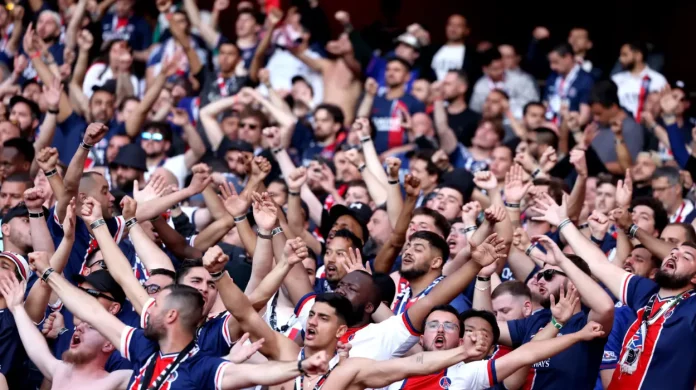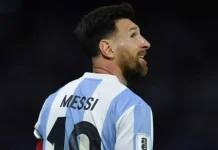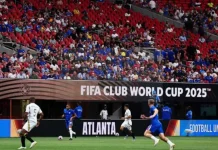The debate over the location of the UEFA Champions League final has taken a decisive turn following clear and forceful statements from EU Sport Commissioner Glenn Micallef. As persistent rumors swirl about moving Europe’s premier club football event to lucrative markets like the United States or Saudi Arabia, Micallef’s intervention signals a pivotal moment in the ongoing struggle between commercial expansion and sporting tradition. This analysis explores the substance and significance of his statements, contextualizes them within broader EU sports policy, and examines the reactions and implications for European football and international sport.
Championing European Identity in Sport
Commissioner Micallef’s remarks leave no room for ambiguity: “These are European competitions and European competitions should be played in Europe, I think that’s quite clear. It’s the European Cup, come on”. Delivered on the eve of the 2025 final in Munich between Inter Milan and Paris Saint-Germain, his words are a direct rebuke to suggestions that the Champions League final could one day be held in the U.S. or Saudi Arabia—markets that have shown increasing appetite and financial muscle for top-tier football.
This stance is more than a defense of geography; it is a defense of cultural and sporting identity. The Champions League, with its deep roots in European footballing tradition, is seen by many as a symbol of the continent’s sporting excellence and community spirit. Micallef’s insistence that “European football should stay in Europe” is a call to preserve the authenticity and accessibility that have made the competition a global phenomenon.
Fans at the Heart of the Debate
Micallef’s intervention is also notable for its focus on ordinary fans. He argued passionately that supporters should not be priced out of watching their local clubs compete in finals:
“You can say I’m emotional on this, but if you have a favorite local club and if that club manages to get to the final of a trophy, be it the national cup or another final, why shouldn’t you be able to afford to watch your team?”
This sentiment resonates deeply in a footballing landscape where corporate interests and global expansion often overshadow the needs and desires of local supporters. The reality is that most tickets for Champions League finals are already allocated to corporate partners and UEFA delegates, making access for ordinary fans a persistent issue. Moving the final to another continent would exacerbate these inequalities, placing the experience further out of reach for the very people who sustain European football’s vibrant culture.
Commercial Pressures vs. Sporting Values
The commercial allure of the U.S. and Saudi Arabian markets is undeniable. The Saudi Pro League, for instance, spent more than £700 million on Europe-based players in a single summer, underlining the financial clout of Gulf football. Meanwhile, the American market has shown a growing willingness to pay premium prices for top-level football, and broadcasters like CBS/Paramount+ have invested heavily in European competitions.
UEFA President Aleksander Čeferin has acknowledged these commercial pressures, admitting that discussions about taking the final abroad have begun, even if he denies any concrete plans. The logic is clear: sponsorship and broadcasting revenues from new markets could dwarf traditional income streams.
Yet, Micallef’s intervention is a reminder that the soul of European football cannot be measured in balance sheets alone. His comments reflect a broader EU commitment to maintaining the integrity and accessibility of sport, even as globalization and commercialization reshape the landscape.
A Broader Policy Context: Values, Peace, and Human Rights
Micallef’s statements on the Champions League final are consistent with his wider approach to sport as a vehicle for promoting European values. In recent weeks, he has argued that there should be “no space in sporting events for those who do not share our values,” particularly in reference to controversies such as Israel’s participation in international competitions amid the Gaza conflict.
He has repeatedly emphasized that “sport is a tool that we use to promote peace, through which we promote human rights”. While acknowledging the autonomy of sporting bodies like UEFA and FIFA, Micallef insists that the EU has a duty to speak out and advocate for its principles.This philosophy underpins his resistance to moving the Champions League final abroad: for Micallef, the event is not just a game, but a platform for expressing and reinforcing the values that define European society.
Reactions from Stakeholders
The response to Micallef’s statements has been overwhelmingly supportive among European football stakeholders:
- Club Executives: Jan-Christian Dreesen, CEO of Bayern Munich, echoed Micallef’s concerns, warning, “We are not the Cirque du Soleil. We have a European championship, and we have to play our matches in Europe”.
- Fans: European supporters have broadly welcomed the commissioner’s stance, seeing it as a defense of tradition and a bulwark against the relentless commercialization of the game. Many recall the backlash against the failed European Super League as evidence that fans will mobilize against moves that threaten the sport’s core identity.
- Media and Pundits: Commentators have compared the idea of a U.S. or Saudi final to holding the Super Bowl in Europe or the NBA Finals in Asia—an intriguing commercial proposition, perhaps, but one that risks alienating the competition’s most devoted followers.
Sport as a Stage for Values and Diplomacy
Micallef’s approach to sport extends beyond football. His recent comments on the potential exclusion of Israel from sporting events, in light of the Gaza conflict, highlight his view of sport as a stage for political messages and value promotion. He has argued that “these spaces are big stages for political messages, big stages where we should promote values that we stand for in the Union, and where we should give space to those who have similar values to us in general”.
This stance is not without controversy. Critics, including Israeli officials, argue that sport should unite rather than divide, and warn against using athletic events as tools of political pressure.Nevertheless, Micallef’s position is consistent: whether the issue is the location of the Champions League final or the participation of countries in international competitions, he believes that sport must reflect and reinforce the values of the European Union.
Implications for the Future of European Sport
Micallef’s statements come at a time when the European sporting model is under intense scrutiny. The annual EU Sport Forum, which he leads, is dedicated to shaping the future of sport on the continent, with a focus on promoting a European Sport Model, athlete welfare, and the role of sport in education and society. The debate over the Champions League final’s location is emblematic of the broader challenges facing European sport: how to balance tradition and innovation, accessibility and commercial growth, local identity and global reach.
By drawing a clear line in the sand, Micallef has set the tone for future discussions. His message is that European sport must remain rooted in the continent’s values and communities, even as it continues to engage with the wider world.
A Defining Moment for European Football
The controversy over the Champions League final’s location is far from settled, but Glenn Micallef’s intervention has shifted the terms of the debate. By articulating a vision of sport that prioritizes tradition, accessibility, and values over commercial expediency, he has given voice to millions of fans and stakeholders who fear that the soul of European football is at risk.
As UEFA and other sporting bodies weigh their options, they will do so under the watchful eye of a European Commission determined to keep the “European Cup” truly European. In the words of Micallef himself: “It’s the European Cup, come on”. The message is clear—and for now, at least, the champions will stay home.













